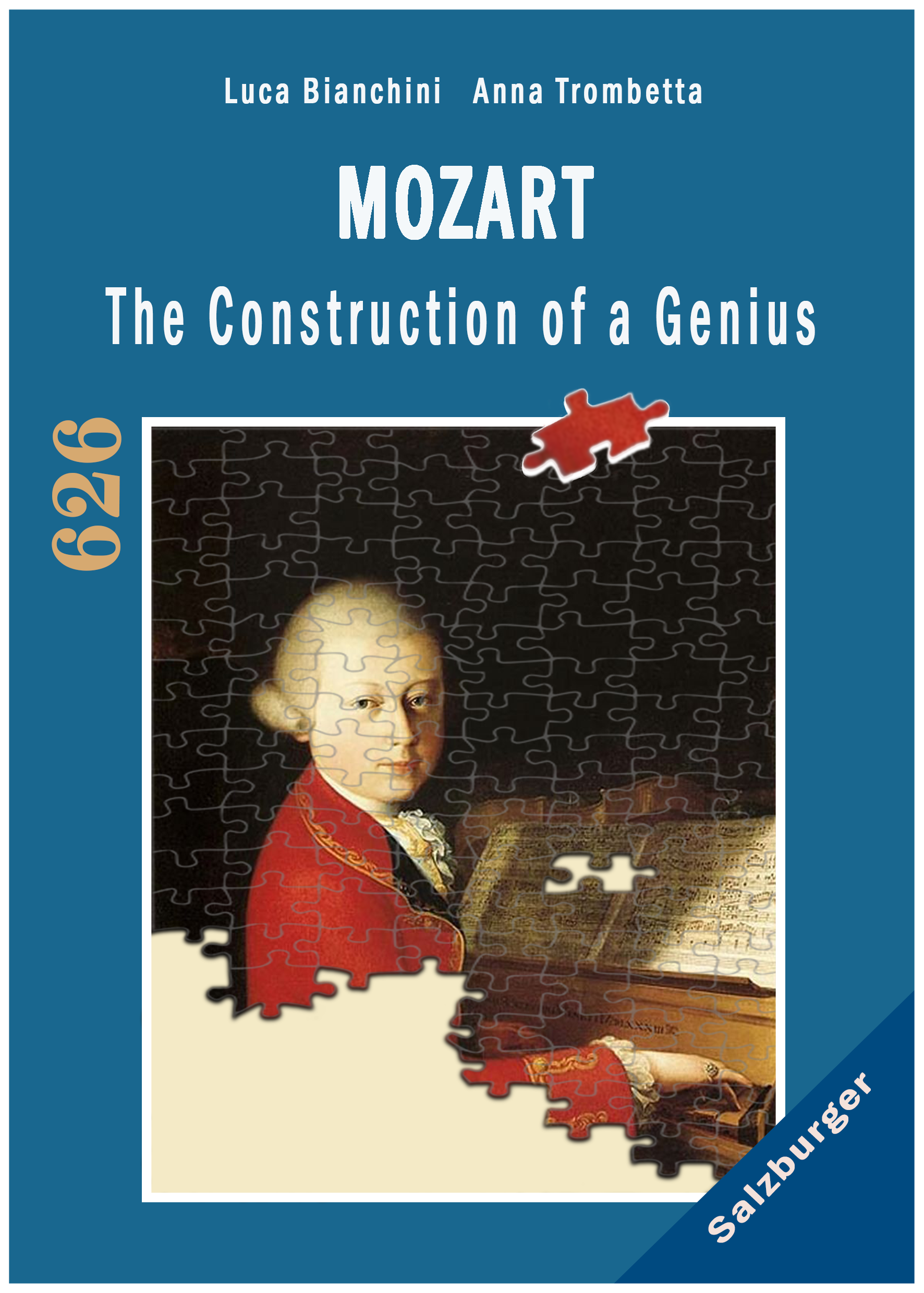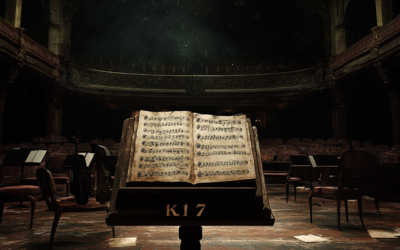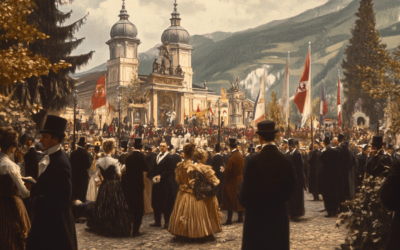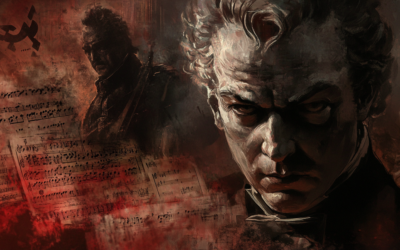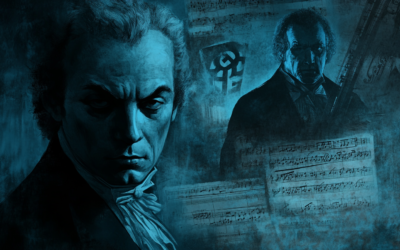Unveiling the Myth
Mozart's Thematic Catalogue Exposed as a Forgery
A groundbreaking forensic analysis reveals that Mozart’s thematic catalogue, long thought to be his own work, is a posthumous forgery. This discovery, detailed in Mozart: The Construction of a Genius, turns centuries of Mozart scholarship on its head, demanding a re-examination of his legacy.
Mozart: The Construction of a Genius
This book offers a fresh and critical look at the life of Wolfgang Amadeus Mozart, challenging the myths that have surrounded him for centuries. We strip away the romanticised image of the “natural genius” and delve into the contradictions within Mozart’s extensive biographies. Backed by nearly 2,000 meticulously sourced citations, this work invites readers to explore a deeper, more complex understanding of Mozart. Perfect for those who wish to question the traditional narrative, this biography is a must-read for serious music lovers and historians.
"The esteemed Mozart’s Thematic Catalogue, spanning 1784 to 1791, is an intricate forgery from the late 18th century."
Mozart: The Construction of a Genius
At the prestigious IGS 2023 Conference in Évora, Portugal, we revealed a bombshell that shakes the foundations of Mozart’s legacy. Our research uncovered that the famous thematic catalogue, long attributed to the composer, is a forgery. Using cutting-edge technology and painstaking forensic handwriting analysis, we have shown that the document was most likely fabricated after Mozart’s death, shattering long-held beliefs about the authenticity of his works.
Mozart’s wife, Constanze, has long been credited with preserving and authenticating this catalogue, yet the document never appeared during Mozart’s life. Only after his death did it emerge, forming the basis for the sales of his unattributed works. This raises significant doubts about Constanze’s role and the narrative surrounding Mozart’s catalogue. As we examine in detail in Mozart: The Construction of a Genius, this catalogue played a crucial part in elevating Mozart’s posthumous reputation, though it is now clear that its authenticity cannot be trusted.
Our bespoke C# software analysed hundreds of characters, comparing the writing in the catalogue with authentic manuscripts and letters from Mozart’s hand. The results were astounding—discrepancies in handwriting, clef shapes, and even the ink used, which was inconsistent with Mozart’s manuscripts. Particularly telling were examples like the word “Bassi,” whose form in the catalogue contrasts starkly with known examples from Mozart’s compositions. The watermarks also provided another clue, revealing connections to documents dated after Mozart’s death in 1791.
This forgery goes beyond simple discrepancies; it alters how we view Mozart’s works catalogued between 1784 and 1791, questioning the legitimacy of many pieces previously believed to be authentic. As explored in our book Mozart: The Construction of a Genius, this discovery raises deeper questions about the image of Mozart that has been manipulated over the centuries for various purposes—ranging from Constanze’s financial gain to nationalistic symbolism and commercialisation of the composer’s legacy.
The scholarly paper A Questionable Catalogue, presented at IGS 2023, corroborates these findings with compelling forensic evidence, adding weight to the notion that the thematic catalogue is not what it appears to be.
This discovery changes everything, forcing scholars to revisit the foundation of Mozart’s legacy. What other elements of the Mozart myth are based on unreliable sources? Our research opens the door to rethinking not just this document but the entire narrative around one of history’s most revered composers.
You May Also Like
Constanze Mozart’s Enduring Love
Although some have doubted her devotion, Constanze’s own words and actions illustrate a widow deeply committed to preserving Mozart’s legacy. Diaries, personal correspondence, and eyewitness testimony all challenge the notion that she neglected his memory—while the circumstances around his burial grow ever more perplexing.
A Revealing New Interview on His Thematic Catalogue
We’re excited to present a brand-new interview that challenges many of the long-held assumptions about Mozart’s Thematic Catalogue (1784–1791). Conducted by Swedish journalist Henry Grynnsten, this conversation delves into groundbreaking forensic techniques—like advanced ink analysis and digital image processing—that may change the way we view Mozart’s late works.
The Rattling Symphony: A Critical Take on K. 17
Often attributed to Mozart, the K. 17 symphony is anything but refined. Lacking orchestration and filled with gaps, it raises more questions than answers about its true authorship.
The Hidden Origins of the Salzburg Festival: A Nationalist Dream
The Salzburg Festival, far from being a mere celebration of Mozart’s genius, was born out of nationalist ambitions during a turbulent period in Austro-German history. Conceived by figures like Max Reinhardt, Heinrich Damisch, and Friedrich Gehmacher, the festival was deeply rooted in ultranationalistic ideals, transforming Mozart’s legacy into a tool for cultural dominance. The truth behind its founding has long been obscured, but the primary sources tell a different, darker story.
Mozart, Wagner, and the Nazi Myth
The Führer’s admiration for Wagner’s racially charged ideology not only influenced the policies of the Nazi regime but also reshaped the legacy of Mozart. Under National Socialism, Mozart was not celebrated as a universal genius but as a symbol of German purity and superiority. His music, stripped of its international influence, was rebranded as an expression of Aryan identity, intended to unify and inspire the German people.
Mozart, the Anschluss, and Nazi Propaganda
Following the 1938 Anschluss, the Nazi regime rebranded Mozart as the quintessential German composer, using his image to promote unity between Austria and Germany. The Salzburg Festival became a platform for Nazi propaganda, distorting Mozart’s legacy to fit their nationalistic and racial agenda.

